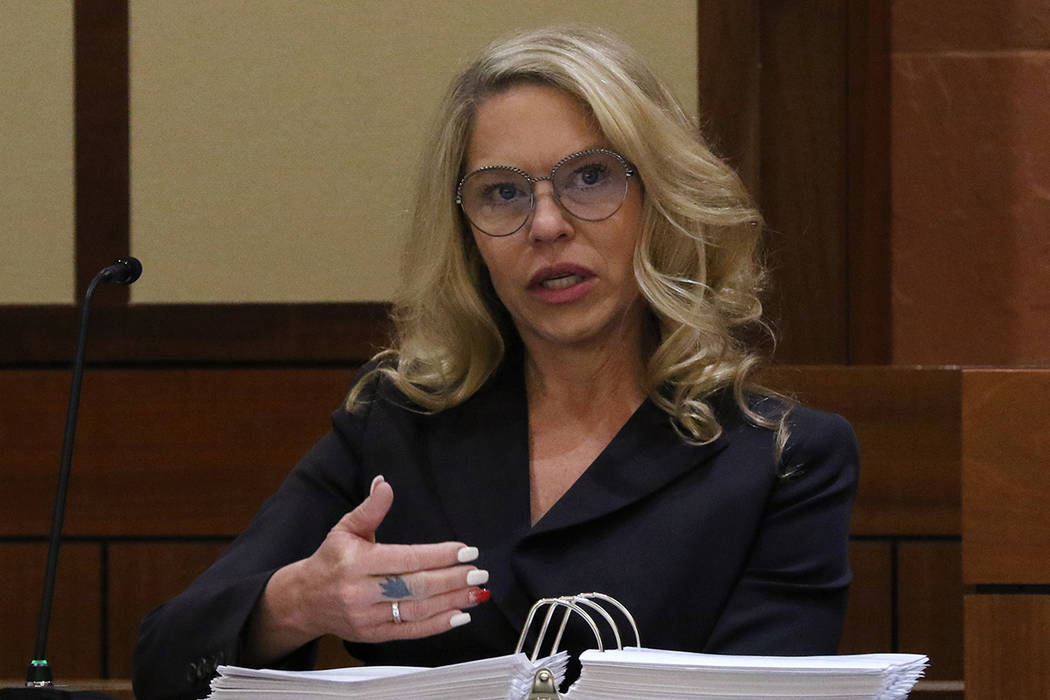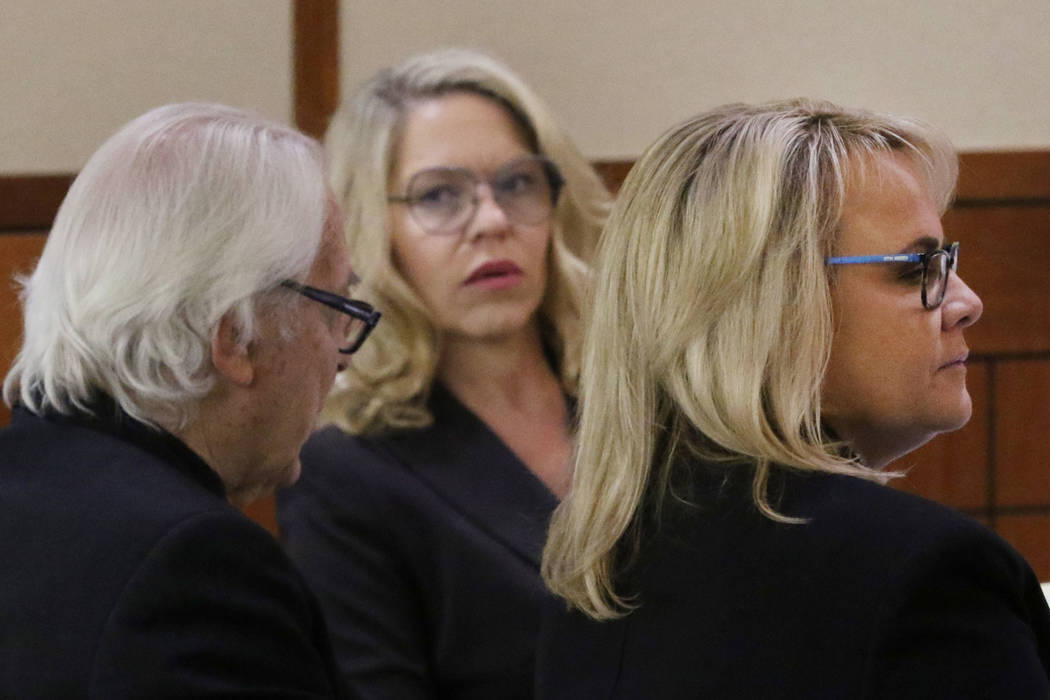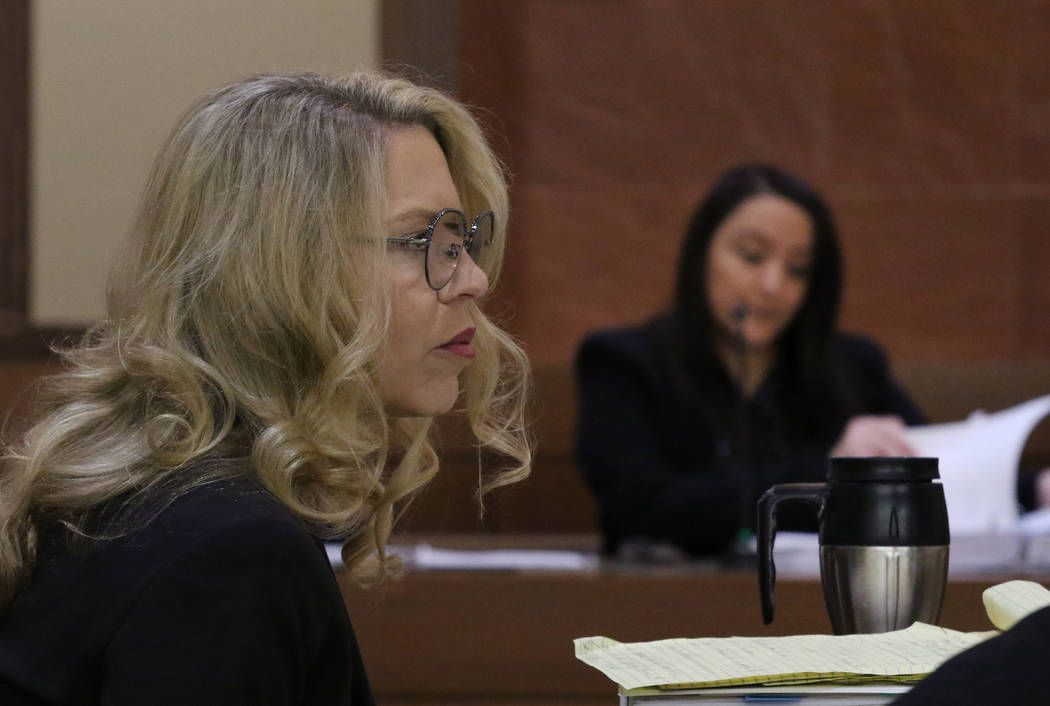Judicial discipline panel has history of punishing judges
In more than 40 years, the Nevada Commission on Judicial Discipline has suspended only two sitting judges from the bench while contemplating misconduct allegations.
One faced a federal criminal indictment, while another slept during trials and treated her staff as servants.
This week, the seven-member panel weighed the possible suspensions of Las Vegas Justice of the Peace Melanie Andress-Tobiasson and Amy Chelini after a two-day hearing over profanity and administrative complaints about court clerks.
Some of the purported behavior occurred more than two years ago.
Still, defense lawyer Bill Terry, who has represented at least 10 judges before the commission, said he anticipates punishment.
Retired Judge James Bixler, who served on the Justice Court and District Court benches, said he was surprised that the allegations against Andress-Tobiasson and Chelini reached the level of a two-day hearing.
“I’ve never heard of anything like it,” he said. “It is the strangest, weirdest situation I’ve ever seen. If you cuss like a sailor, not from the bench, what difference does it make?… The process being used in this case is just as baffling as could be.”
Should the commission decide against suspending Andress-Tobiasson and Chelini, Terry, who represents Andress-Tobiasson, said: “I consider that a win,” considering the commission’s history.
In most of its rulings, which range from reprimands to ordering fines and continuing education, the commission has found that a judge violated one of the four judicial canons, Terry said.
Commissioners have said the panel will issue a written decision on possible suspensions for Andress-Tobiasson and Chelini but offered no timeline as to when the order will be released.
Chief Justice of the Peace Suzan Baucum said Thursday that once a decision is issued, “then we will make our plans accordingly.”
In 2014 the commission suspended then-Family Court Judge Steven Jones, who used his office to inject credibility into a multimillion-dollar, decade-long investment fraud scheme. Two years later, the panel banned him from the bench for life.
Former District Judge Elizabeth Halverson was suspended in 2007, and she was permanently removed from the bench a year later, after the commission found her guilty of wide-ranging misconduct, including sleeping during hearings, improperly contacting jurors and mistreating her staff.
This week, special prosecuting officers for the commission argued that Andress-Tobiasson and Chelini pose “a substantial threat of serious harm to the public or administration of justice.”
Their lawyers, including Terry and Tom Pitaro, disagreed.
During this week’s hearing, they asked witnesses and other judges whether Andress-Tobiasson and Chelini pose a threat to the public. All said they did not.
Whether the commission decides for or against suspensions, the panel could level formal charges against the judges at a later date.
“The hearing was supposed to be narrowly focused as to whether they were a danger to the bench,” Pitaro said. “And I think it’s pretty clear from that hearing that neither of them are a danger to the public.”
In a phone interview Thursday, Terry said the charges against Jones and Halverson were more clear-cut.
One of the focuses of attention from special prosecutors seeking to suspend Andress-Tobiasson was a sweater she wore while walking back hallways at the Regional Justice Center.
A since-fired court administrator photographed Andress-Tobiasson wearing the turquoise blue top, emblazoned with a pair of cupcakes and the words “eat s—- and die,” at the courthouse in 2017 and later turned the picture over to investigators with the commission. Others accused the judges of using profanity among court staff, though not in their courtrooms.
The commission is also investigating whether Andress-Tobiasson and Chelini interfered with the hiring and firing of court administrators. The judges said they wanted to keep certain court clerks in their courtrooms because they worked well together, while administrators wanted those clerks in separate departments.
Bixler called a judge’s relationship with a clerk “probably one of the most important aspects of running a courtroom efficiently,” he said. “Trusting and relying on your clerk is absolutely paramount.”
Contact David Ferrara at dferrara@reviewjournal.com or 702-380-1039. Find @randompoker on Twitter.

























